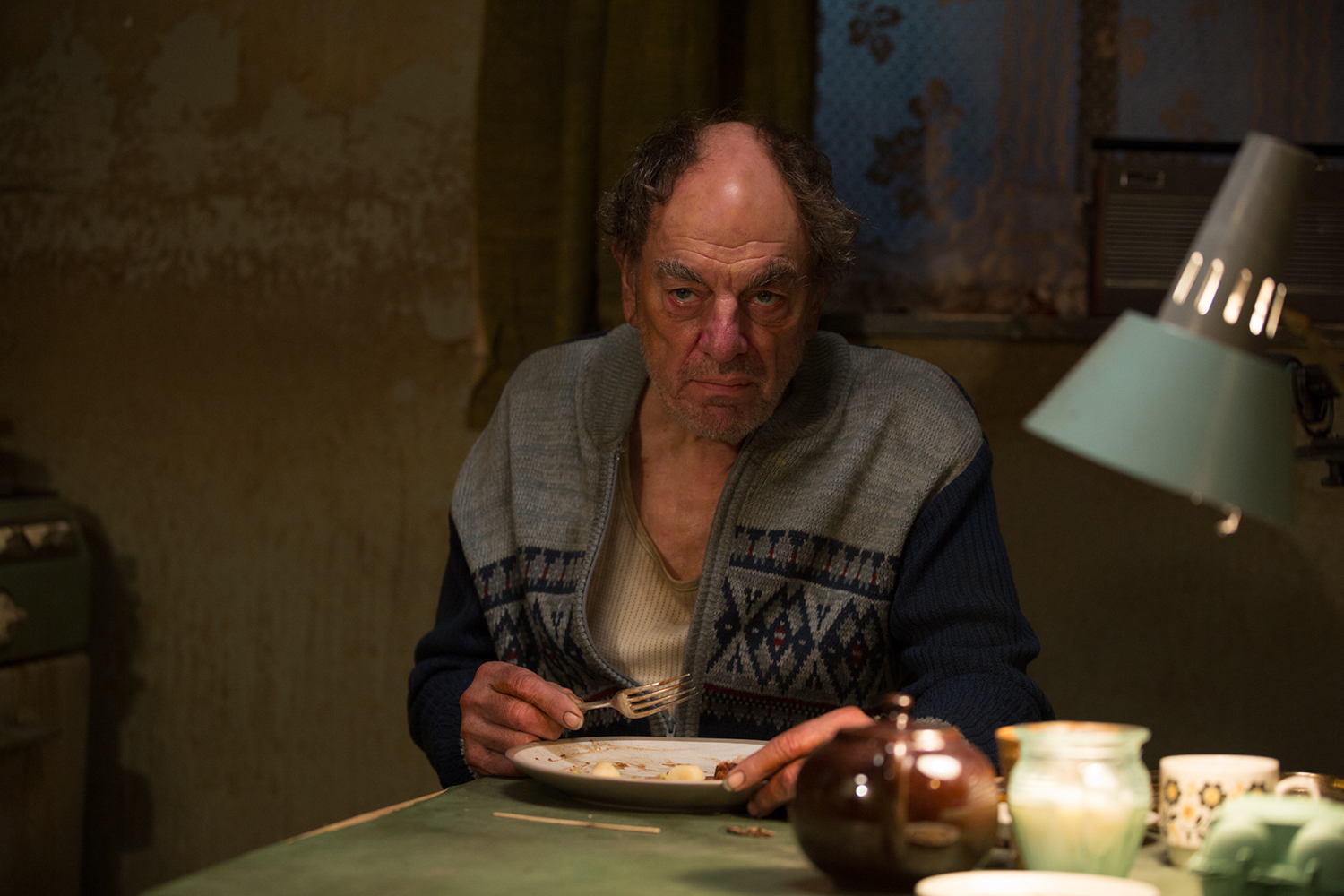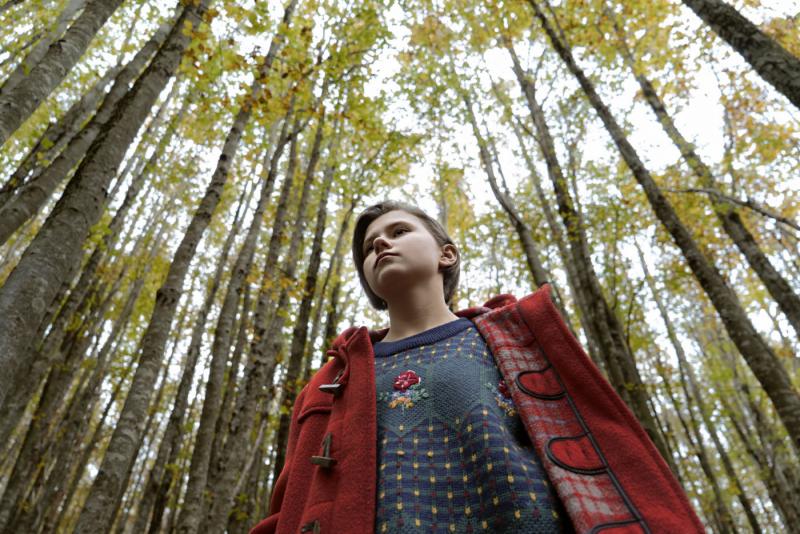Possum review - mind-infecting homage to 1970s horror
Flawed but skin-crawling debut feature from Matthew Holness
Matthew Holness clearly knows a thing or two about low-budget British horror from the early 1970s. In TV comedy Garth Marenghi’s Darkplace he was as merciless as he was affectionate in ripping the genre apart. His debut feature as writer-director is an odd, woozy creation that pays just as overt homage, but Possum is in another tonal world altogether – one that’s brooding, clammy and unremittingly grim.
Former children’s entertainer Philip – disgraced, though we’re left to guess precisely how – makes a physical and psychological return to the charred, crooked remains of his boyhood home, carrying a big, brown leather bag. Try as he might, however, he cannot rid himself of the bag’s appalling contents, his most grisly and most personal creation: a spider-bodied, human-headed monstrosity of a puppet he names Possum. Philip unearths the book in which he detailed Possum’s dark mythology as a boy – and faces another dark ghost from his childhood, his repulsive uncle Maurice.
Holness gets exceptional performances from his two leads in what’s essentially an extended two-hander. Sean Harris is compulsively watchable as the wiry, nervy, deeply troubled puppeteer Philip, gifted with a stare so empty it’s ghastly, and with jerky, mechanical movements that make him seem much like a marionette himself. (How a figure so shambling, withdrawn and damaged could ever have been a children’s entertainer, however, is hard to imagine.) Arguably playing the role of Philip’s puppet master is Alun Armstrong (pictured below) as the wheedling, needling Maurice, spitting out opaque, Beckett-like lines with a snarling contempt, and always ready with the skin-crawling offer of a treat from his sweetie jar.
 Despite his two compelling leads, however, Holness struggles to deliver on the film’s slow-burning and quite lengthy set-up. Indeed, despite its relatively brief 85-minute length, Possum feels more like a short film that’s been stretched than a fully fledged feature. Moreover, its cloying evocations of atmosphere and dread, and its suggestions of imminent jump-scares (few of which, thankfully, materialise), end up far stronger and more memorable than its brief but brutal pay-off.
Despite his two compelling leads, however, Holness struggles to deliver on the film’s slow-burning and quite lengthy set-up. Indeed, despite its relatively brief 85-minute length, Possum feels more like a short film that’s been stretched than a fully fledged feature. Moreover, its cloying evocations of atmosphere and dread, and its suggestions of imminent jump-scares (few of which, thankfully, materialise), end up far stronger and more memorable than its brief but brutal pay-off.
But despite its unapologetic cap-doffs to the 1970s – its music from the Radiophonic Workshop, nods to the well-meaning terrors of public information films, stylised opening credits and stomach-churning palette of sickly greens and browns – what emerges in Possum is an examination of neglect and abuse that feels entirely of our own times. It’s a theme that’s only emphasised by the film’s own relentless, inescapable cycles of horror and dread, even if they finally make the movie rather repetitive.
Possum is far from flawless, but its suffocating journey into a shadowy maze of abuse and regret serves to infect the mind long after the movie’s over.
Overleaf: watch the trailer for Possum

 Sicilian Ghost Story is dedicated to Giuseppe Di Matteo, an 11-year-old boy kidnapped by the Mafia after his father turned informant. Rather than a straight adaptation of this tragic story, writer/directors Fabio Grassadonia and Antonio Piazza bring a dark, fairytale quality to the film. Luna’s imagination becomes both her guide and her sanctuary as she tries to come to terms with the grim reality, hinting at a deeper, supernatural connection between the two.
Sicilian Ghost Story is dedicated to Giuseppe Di Matteo, an 11-year-old boy kidnapped by the Mafia after his father turned informant. Rather than a straight adaptation of this tragic story, writer/directors Fabio Grassadonia and Antonio Piazza bring a dark, fairytale quality to the film. Luna’s imagination becomes both her guide and her sanctuary as she tries to come to terms with the grim reality, hinting at a deeper, supernatural connection between the two.